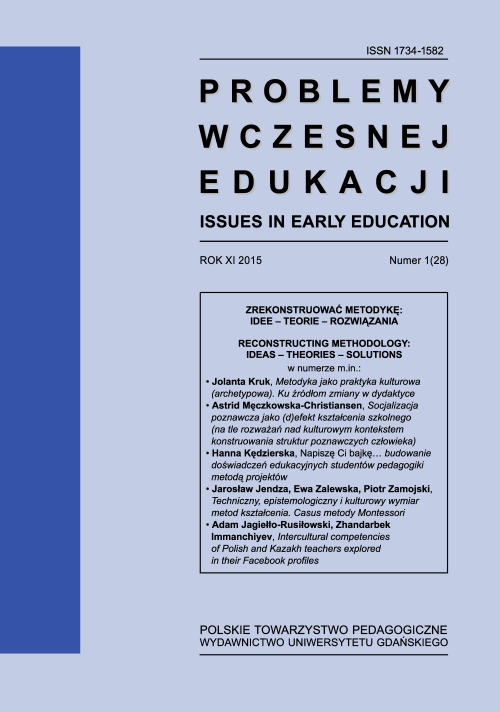Pedagogika muzealna. Cele, idea, kierunek rozwoju i zastosowanie w praktyce na przykładzie „lekcji muzealnej” w polskim muzeum historycznym
DOI:
https://doi.org/10.5604/01.3001.0008.5676Słowa kluczowe:
edukacja muzealna, pedagogika muzealna, nowa muzeologia, muzeum krytyczne, muzeum partycypacyjneAbstrakt
Museum education is a subdiscipline of Pedagogy which has been changing rapidly during the current century. The beginning of such education was inevitably related to the origin of the museum. The richest royal men as kings, princes and priests set up their own individual collections which were displayed only to chosen people. The fi rst museums are claimed to have existed during the Italian Renaissance, for instance Pope Sixtus IV hired Michaelangelo Buonarrotti to create a special place for ancient collections. During the French Revolution it was believed that art had got an unique ability to rehabilitate those members of society who suffered from alcoholism and other kinds of pathology. The Louvre was opened to the public in 1793 and, since that time, art collections have started to be organised in special exhibition form. At the end of the 19th century two German art historians and educationists Alfred Lichtwark and Georg Kerchensteiner started to form a special educational programme for children and young people, concerning the museum collection. In the history of Pedagogy they are claimed to be the forerunners of museum education which has been developing into one of the most infl uential and potential kinds of cultural education in the 21st century. Among history studies, I would like to present museum education in the context of one selected Polish historical museum and then analyze and interpret the ‘museum lesson’ in comparison with contemporary movements in museology and critical, progressive pedagogy.

 Uniwersyteckie Czasopisma Naukowe
Uniwersyteckie Czasopisma Naukowe





